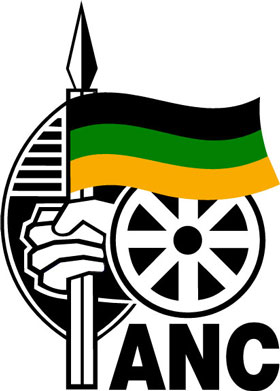 The ANC will meet in Midrand for four days starting on Tuesday to discuss 13 policy documents ahead of its national conference in December. These are some key points from the 13 discussion documents:
The ANC will meet in Midrand for four days starting on Tuesday to discuss 13 policy documents ahead of its national conference in December. These are some key points from the 13 discussion documents:
The “second transition”
A document key to the discussions, “The Second Transition: building a national democratic society and the balance of forces in 2012”, suggests the ANC must now enter a second era of democracy.
In the past 18 years, the ANC has gone through its first transition into democracy, where it concentrated on political emancipation.
Now it needs to introduce a “second transition” that focuses on the social and economic transformation of South Africa over the next 30 to 50 years.
ANC president Jacob Zuma has promoted the idea of a “second transition”, but it has been rejected by the ANC Youth League and SA Students Congress, as well as the ANC in Gauteng and Limpopo.
Organisational renewal
According to the paper on “Organisational Renewal — Building the ANC as a movement for transformation and a strategic centre of power”, the ANC faces a “crisis of credibility”.
“Mangaung must be a turning point, because unless we halt the decay, we will soon reach a stage where it becomes irreversible.”
In the document, three main organisational weaknesses are identified — the erosion of the ANC’s values; in-fighting to the detriment of service delivery; and organisational capabilities that do not match the demands of the current phase of the revolution.
The paper proposes that the ANC revitalise its grassroots structures and fast-track its large-scale infrastructure development, while enhancing the state’s capacity to intervene in key sectors of the economy in pursuit of higher growth rates, employment creation and broad-based empowerment.
Urgent steps are called for to “restore the core values, stem (sic) out factionalism and promote political discipline”.
The mineral sector
The ANC discussion document “Maximising the developmental impact of the people’s mineral assets: state intervention in the minerals sector (Sims)” looks at how best to leverage SA’s mineral wealth to grow the economy and create more jobs.
It says the minerals sector must be placed at the heart of the national development strategy as SA’s strongest comparative advantage.
Instead of nationalising the sector, it suggests introducing a 50% resource rent tax — or a super tax — which kicks in only when an investor has made a reasonable return, so as not to deter investors.
Minerals key to SA’s economy — steel, coal, copper — should be declared strategic and supplied to the domestic market at competitive prices, not at the current exploitative prices.
Communications
The communications discussion document covers a range of topics from information and communications technology (ICT), to the SABC, the SA Post Office and print media.
It proposes the development of a single national ICT policy framework with ICT considered a basic utility. Costs must be reduced by increasing competition and discouraging monopolies in the sector to allow all South Africans access to high-speed broadband by 2030.
The ownership of print media must be transformed, as it is still dominated by four big players — Naspers, Avusa, Caxton and the foreign-owned Independent Group, with black ownership at only 14% and women’s participation at board and management levels at just 4%.
The ANC says it is committed to free media, but it must “pay necessary attention to the print media, as it continues to play a critical role in the battle of ideas within society”.
“Within this understanding, the ANC reaffirms the need for parliament to conduct an inquiry on the desirability and feasibility of an appeals tribunal within the framework of the constitution.”
The document proposes that all three tiers of the government be encouraged to use the SA Post Office and the Post Bank.
State-owned entities and development finance institutions
The main thrust of the “Economic Transformation — Policy Discussion Paper on State owned Entities and Development Finance Institutions” is that state-owned enterprises (SOEs) and developmental finance institutes (DFIs) should aid the developmental agenda, and not be overly concerned with commercial interests or making a profit.
“SOEs and DFIs are not created to maximise profits or incur losses, rather their existence is for the purpose of driving the development agenda. The key objective of this policy discussion paper is to ensure that state-owned commercial entities operate as powerful instruments of economic transformation and remain firmly within the control of the state.”
They should make enough money to be self-funding, while taking on developmental projects in which the private sector would not ordinarily invest. The document suggests national savings, such as pension funds, should be used to fund development.
“As a matter of urgency, the state should regulate a substantial part of retirement and life assurance funds (public and private) in order for these funds to be invested in SOE and/or DFI financial instruments … programmes.”
Gender
The ANC needs to tackle gender inequality in society as well as in its own ranks, where the current ANC leadership of the ANC has the lowest female representation since our democracy began in 1994.
The paper calls for the conference to look at ways to address patriarchy within its realms and society as a whole.
It calls for the speedy publication of the Gender Equality Bill, which advocates equality between men and women in the public and private sectors.
It also asks that in all government policies, such as the New Growth Path, that half of the promised jobs go to women, and that parastatals ensure they award at least 50% of their tenders to women.
Land reform
SA’s apartheid history has resulted in the unequal distribution of land ownership in favour of whites and a problematic tenant system.
Some 87% of land has been dominated by white commercial farming, with 13% allocated to the former homelands.
To address this, radical land reform was necessary, while not disrupting agricultural production and food security.
Land redistribution has been hampered by the high cost of land, so the ANC’s aim to redistribute 30% of the land would need a review of the willing-buyer, willing-seller principle.
On the release of the policy documents in March, Jeff Radebe, head of the ANC national executive committee policy subcommittee, said: “The recommendation in this document expresses the view that the current willing-buyer, willing-seller model tends to distort the land market through inflating the prices of land earmarked for restitution, and this has the dual effect of making land reform expensive and delays the process of increasing access of the poor to land.”
The document proposes introducing an office of a valuer-general who can set standards for valuation of land that involve fair compensation.
Social transformation
The document on social transformation looks at SA’s need to deal with the triple challenges of poverty, under-development and unemployment if it is to build a socially inclusive society.
It calls for greater equality for women and the addressing of youth unemployment through strategies to improve education and skills levels.
Policy proposals include enhancing services to children, and a more vigorous fight against substance and alcohol abuse, such as limiting the availability of alcohol, and revising advertising and pricing policy.
It proposes the consolidation of relevant policy legislation and frameworks for better human settlement planning.
Legislature and governance
The paper calls for fewer provinces, which should be functional, effective, economically sustainable, integrate communities on a non-racial basis and do away with ethnic boundaries. The envisaged policy changes might require constitutional amendments.
It recommends dealing with local government problems of delivery through the devolution of some functions — such as housing and transport — to cities. SA should continue to hold separate local and national/provincial elections.
It suggests various measures to improve community participation in local government, such as ensuring that ward committees are made up of representatives of residents, ratepayers, business, trade unions, women’s organisations and the youth, instead of being dominated by political activists.
International relations
The United Nations, the World Bank and the International Monetary Fund must be reformed, according to the ANC’s discussion document on international relations.
However, it argues that African representatives will not necessarily improve the institutions.
The ANC suggests that accountability mechanisms are necessary to ensure those deployed to these institutions further the African agenda.
It criticises the G20, a group representing 20 major developing economies, for having become a “legitimising platform” for the G8, the group of eight of the largest economies in the world.
The document looks at how SA can strengthen institutions like the African Union, the New Partnership for Africa’s Development, the African Peer Review Mechanism and the Southern African Development Community.
The document recommends that the ANC deepen its relations with former liberation movements while at the same time strengthening party-to-party relations with all progressive political formations in Africa.
Peace and stability
The peace and stability discussion paper covers three areas — home affairs, justice and the police.
The section on home affairs examines how a developmental state needs a detailed, secure identification system which includes citizens and non-citizens. This ensures that the state can plan for the future and protect its people.
The department of home affairs must therefore be repositioned to manage an effective national identity system.
The justice section explores the development of policies to establish an integrated judicial governance framework headed by the chief justice.
It suggests the power to make rules of court relating to case management should reside with the judiciary, and rules relating to matters which impact on public policy should be approved by the executive and parliament.
The section on the police proposes a single police service to maximise effective policing.
Economic transformation
The economic transformation policy document’s vision is to build an economy in which “the state, private capital, co-operative and other forms of social ownership complement each other in an integrated way to eliminate poverty and to foster economic growth”.
The ANC reaffirms its commitment to a developmental state located at the centre of a mixed economy. A mixed economy includes a thriving private sector and accountable public ownership and investment.
The paper calls for a clear strategy on supporting growth in Africa as well as clear and transparent guidelines for foreign direct investment.
Given the problems of broad-based black economic empowerment, the ANC must “re-assert the objective of transforming the racial character of SA capital”.
More black-owned small, medium and micro enterprises should be created, especially as they create jobs.
The document suggests that the crisis in achieving economic solutions is “partially a crisis of implementation and fragmentation”.
“We need to act by strengthening the link between ANC resolutions and our actual actions on the ground, at the same time we should have early warning systems on weak implementation.”
It calls for a debate on the youth wage subsidy — rejected by its alliance partner Cosatu, while saying infrastructure development is the focal point of economic growth.
Education and health
The paper suggests that SA is under-performing in education, particularly in numeracy, literacy, science and technology.
The higher education section proposes a continued focus on the building of a single, coherent post school education and training system. It calls for the improvement of universities and FET colleges, and for community service across the board.
The language policy for schools must be considered and grade-R should be made compulsory, as pupils who completed this pre-school year, performed better later on.
Critics of the basic education section say it does not deal with problems created by the SA Democratic Teachers’ Union, HIV, improvement of schools including sanitation and access to water, or parental involvement.
The health section discusses the need to consolidate the National Health Insurance system. It calls for responsibility for major state hospitals to shift from provinces to the national department.
Military hospitals may also be integrated into the public health system.
The paper suggests that HIV/Aids be classified as a notifiable disease so that it can be monitored and controlled, and to help the government to better plan how to deal with it.
SA needs to spend more on research and development to make it more competitive in science and technology. — Sapa




